Booooo!
We are in October, and Halloween is coming
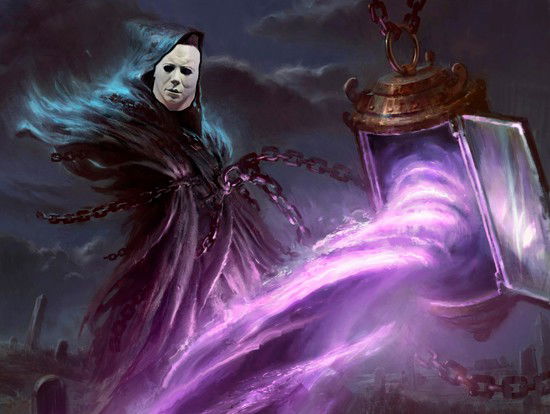
Bandit Keith is a player who is always present in the Pioneer Royale weekly tournaments, always playing as UW Spirits. He is making quite a name for himself after winning the tournament three times just on this first season, besides being part of the Top8 multiple times. It is almost expected that, if you are part of the Top8 while playing our Pioneer series, you will run into him.
He accepted an invitation to tell us a bit more about himself and his playstyle. Let's check it out! :)
Interview
1 – So, Bandit Keith! You are achieving quite a name for yourself in our community after being the king/queen of Pioneer Royale three times, in addition to reaching Top2 multiple times. What can you tell us about the man/woman behind the mask? Who are you? =)
Keith: First of all I want to thank you and the entire Pioneer Royale / CardsRealm both for taking an interest in me, as well as appreciating and noticing me, and also making me feel welcome even though I am not Brazilian and do not speak Portuguese, so I cannot understand the match coverage or commentary. I am an American; 30 year old male, specifically from New York. Thusly, I would be a King, not a Queen (at least not yet, anyway)
I have been playing Magic since Urza's Saga / 6th edition. And by playing Magic, I mean, being a dumb kid, opening packs with my friends and trying to get Nightmare (which I know now as a junk rare), and I thought Elvish Piper was the best card ever (Can you imagine a 4 mana 1/1, with Lava Darts everywhere? It seems unfortunate that when a person learns how to play competitively and what decks are good/not good, it takes away some of the Magic from Magic. I miss the days of seeing big mana cards and saying "Wow! What a strong and cool card!" and getting excited instead of automatically throwing them to the junk bin). I have played on and off and quit for a while, and wasn't around for Lorwyn, Alara, Time Spiral, or the New Mirrodin block. I came back and continue to play for multiple reasons. The competitive element of winning and solving intellectual puzzles (by picking the right lines of play) gives me intellectual satisfaction, and the fantasy part of the game gives me emotional satisfaction.
The emotional satisfaction comes from resting my mind and my heart in the fantasy world that we nerds live in spiritually (no pun intended): a world of dragons, blue skies, green pastures... a world of Magic. It is the core identity of who I am - a gamer, a nerd, a dreamer, someone whose heart is in a different world - and by playing and continuing to play, it is an affirmation to the world (and to myself) of my identity. An important person to me showed me this world long ago, and though this person is not with me any longer, it is important to me to carry on this spirit, and relive these memories. I see myself as a boy in search of lost time. The competitive aspect - winning - makes me feel like I am a master of this world, and that I honor her memory well, and the very fact I choose to live in it and participate in it shows that I chose the right path in life.
2 – Is Pioneer your favorite format?
Keith: Yes, Pioneer is my favorite format. I think I am like many people who were extremely excited for Pioneer when it was first announced, and we came over from Modern. I like the idea of an eternal format, but one which isn't too crazy. Eternal as in, I don't need to worry about rotations the way Standard players do - that their cards and decks will be worth less and not be used, with time - and I found Legacy / Vintage too crazy for me. One of the last times I played Legacy, I got killed by 3 different decks, on Turn 1, with an opponent playing first. So that means I lost the game before I could even play a single land out. So, like many others, I gravitated to Modern, since it seemed like a middle ground: an eternal format with many different archetypes around, where you don't need to worry about your cards losing value over time, and a format where the games felt more fair and balanced than other formats. When Pioneer was first announced, it did feel like having Modern all over again.
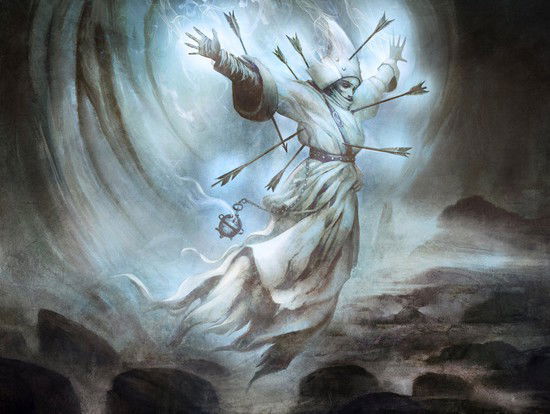
3 – Pioneer is still an evolving format, and we had not so long ago a ban announcement that affected 4 of the most played decks on Pioneer. What are your thoughts on the format its future?
Keith: Of course, the story of Pioneer leads up to your question now. Pioneer was really amazing and exactly the sort of fun, interactive, and fair Magic that much of the players liked, and brought them to Modern originally... until the set Theros: Beyond Death came out. Then of course, as you know, Pioneer has suffered from having decks that upset people, and Wizards being slow to ban them. Pioneer has had many bans, and many ups-and-downs, especially since Theros came out. I think the fact Wizards seemed to not care about the format, and took so long to ban Inverter and other things that people didn't like, put a bitter taste in many people's mouths, and they just returned to Modern, and the fire in their hearts for Pioneer when it was first announced have died down. I think that only time will tell if Pioneer can recover its reputation, after having been through many bans and had a reputation of a combo format, where the best decks were only combo, like Inverter and Heliod Ballista.
In terms of the future of Pioneer, I am unfortunately not optimistic, since aside from having to regain a hurt reputation that Pioneer has had lately (this is true for anything else in life; for better or worse, the initial impressions of something are difficult to erase, even if circumstances change), as we can tell from Standard, Wizards is having design problems, and they keep making broken cards that shake up formats. This is true now for all of Constructed, and no format is safe anymore. If we look at the formats like a ladder, you have Standard at the top, with the smallest card pool, and Vintage at the bottom, with the largest card pool. The design mistakes that Wizards have made in Standard, from Kaladesh's cat combo and Marvel, to more recently, with Oko, Uro and Omnath, can also filter through to Pioneer. In that ladder, Pioneer is next in-line, right after Standard, since it is the 2nd smallest of the major formats, and that's not a good place to be, being next to Standard.
Last I checked Uro and Omnath, for example, are still legal in Pioneer, and to me it's not a good thing. What this tells me is that, while Magic's Constructed scene has had a crazy couple of years - and Standard alone was worse for even longer, with many bans - Wizards is willing to clean up and fix their mistakes for Standard much more so than they are willing to do that for Pioneer, as we saw from how long it took for them to ban the oppressive combo decks. In short, it is one of the smaller-pool formats, that doesn't seem cared about by Wizards as much as other formats, and the FIRE design philosophy has been a wrecking ball, all through-out Constructed Magic. I will add that even though Magic has been around for longer than 25 years, they printed the best creature (pre-nerf Lurrus) ever made, a card so strong it had to be banned in Vintage even, which is almost unprecedented, and the best planeswalker ever, Oko - a card that needs no introduction.
So I think the optimism that people once had for Pioneer when it was first announced is dying down - unfortunately for good reason - but it still holds a place in my heart. The good thing about the Pioneer Royale event is that it feels like you're playing with friends that you know, like from a local game store. If I see certain players, I have a good idea what deck they are playing, and if they see me, they know I am likely to play Spirits. So even though I think Pioneer will devolve into a niche format that people care about less and less over time (like Legacy, and how SCG dropped Legacy from their tournaments), I think we have an isolated event that has some more fun and camaraderie than otherwise playing Pioneer competitively in Leagues, and that helps. We don't see a lot of Uro or Omnath, and it is mostly fair creature decks vs other fair creature decks, and that's my favorite kind of Magic. I love playing against RDW, tribal decks, or aura decks. It has decision making and interactive creature combat.
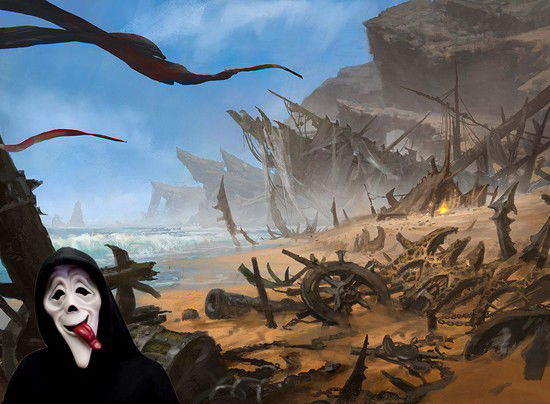
4 – So… Spirits. This is your signature deck on Pioneer Royale. Why did you choose this deck?
Keith: I chose Spirits because it suits my playstyle: which is, an aggro-based creature deck, but with a twist. I don't like playing decks which don't win through creature combat. I am an aggro player, and I love being pro-active, instead of reactive. However, if I played something like Goblins, and the opponent plays a Supreme Verdict, it makes me feel so helpless. But that's where Spirits shines as a deck, and that's where the twist is: it is an aggro deck that can kill with big powered creatures in the air, but it also has a lot of control elements, since the creatures have so much utility. They can counter spells, they can tap down enemy creatures, and Selfless Spirit even makes your team indestructible to Wrath effects. It's the best of both worlds: an aggro deck that can control its own destiny by simultaneously squeezing the opponent out of resources and killing him with evasive creatures. And we all know how good 2-for-1's are in Magic! In short, it is strong, cheap, and has a lot of durability.
5 – Are you willing to share more about your decklist and how do you play against certain popular decks in the current metagame?
Keith: Yes. Well as suggested before, my decklist shows how Spirits is really almost a deck that's split in half: the aggro, where you have the lords, like Empyrion Eagle and Supreme Phantom for the aggro portion, giving power in the air (I've also played with 2 of Rally of Wings, and really, it can just kill out of nowhere), but also the control spirits: Rattlechains trying to stop a removal spell (and also making it that I can flash in spirits, for extra tricks, like flashing in a Selfless Spirit to give my team indestructible an instant speed - that's a hell of a combat trick), Spell Queller to act as a counterspell, and Shacklegeist / Nebelgast Herald to tap down creatures. With strong elements of both aggro and control, it takes a pilot a lot of practice and experience to know when to switch from one mode to the other.
The biggest deck I've played against in the meta is, by far, an aura-based deck, kind of like how Bogies is in Modern: you take a harmless innocent creature that usually costs one mana to play, and then beef it up extensively with many auras, until he's something like a 7/7 vigilant lifelink first striker. I've typically done well against these decks since 3 Shacklegeist and 4 Nebelgast maindeck are extremely strong, since it exploits that deck's weakness: they invest so much in making a fat creature, but what happens if that fat creature cannot attack or block and gets tapped down constantly? The only counter-play they have against it is Karametra's Blessing which provides hexproof, but again, this is only a temporary solution. I will be able to tap it down more than they can prevent it from being tapped, so they must try to kill me very fast with multiple Karametra's, since time is not on their side.
Shacklegeist is better than Nebelgast since it doesn't require a mana investment to tap down, nor a Spirit that I can flash in, on opponent's turn. I think I only lost once against Auras, and that was when I never had any Shacklegeist at all in any game, and my opponent had multiple Karametra's to stop the tapping from Nebelgast (which I cannot repeat, since I don't have enough mana). I don't think I ever lost vs Auras when I had Shacklegeist out. In fact, remember how I said that the beauty of this deck is that it is both aggro and control at the same time? I am going to try out cutting 2 of the aggro cards, the Rally of Wings, in favor of more control elements: 1 more Shacklegeist and something else. It's just too good, in a creature oriented Pioneer Royale meta. That card is just too good vs Auras and the only time I lost against it, I never had one.
I have also played vs aggro decks, like RDW, or some green stompy decks. For RDW, I think the match comes down to being able to protect my Spell Queller. If I Queller the opponent's spell, and he doesn't manage to kill the Queller to get the spell back, I noticed that I will be in great shape, since he is down a card (RDW needs to not be at card disadvantage to win; it is a hard and fast deck that typically loses long-term), and I will be able to win the race, since a 2-power in the air to hit (or 3 toughness to block) even without the help of a Lord is pretty helpful. I also need to make sure to save my Rattlechains for a 2-for-1 on a removal spell, instead of just playing it without added value. I think if I Queller his spell, and he tries to get it back by burning Queller, but in response I protect it with Rattlechains, he is already at such a heavy loss. He'd be down 2 burn cards, I have 4 power in the air at least, and if any creature gets too big with prowess, like Soul-Scar Mage, I can just tap it too Playing vs Stompy is very different. For them, it's all about fat creatures.
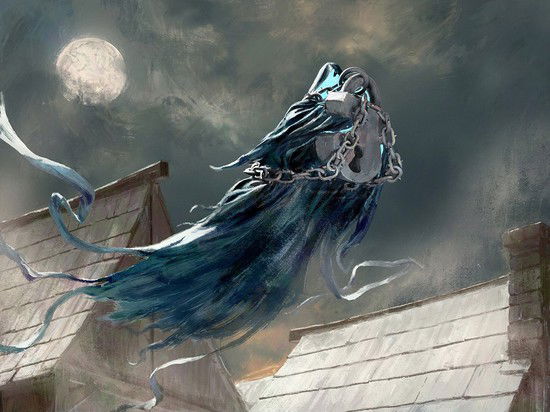
I don't need to worry about burn spells to my face if my life gets too low, or burn spells on my creatures, or any tricks. If I spell Queller their fat creature, I don't need to worry about protecting Queller usually. It's just, they play a fat creature on Turn 2 (Llanowar elf on Turn 1), and can I deal with it? The way I play vs them is that I don't try to race them early; their creatures are bigger than mine, so I need to be patient and tap down their team with Nebelgast and Shacklegeist, until the point where I have enough creatures to both tap down their team, and also hit in the power. So it is just me, biding my time for several turns until I get to late game. It's almost similar to Auras, where they have big creatures that I need to tap down early, but the difference is, for Auras, the creatures will be way bigger than mine always, but for the green decks, their power is usually capped at something like 4-5.
These decks consist of probably around 80 percent of my opponents. It is mostly a creature-based meta, which is one I like, both for Spirits itself, and also for decision-making as a Magic player. I have also played vs control, and for that, my plan is just go full aggro, as fast as possible. I can only control other aggro or midrange - I cannot outcontrol a real control. So I try to go fast and wide with aggro, praying to have a Rattlechains for a spot removal, a Selfless Spirit for a wrath, and save Queller for a Wrath. Once they start dropping the big Planeswalkers on me like 5 mana Teferi or Elspeth, I know my time is short, and I will be grinded out on pure card advantage. It is a tough matchup for me since those decks are built to beat up on creature decks, since they run heavy removal, but as stated before, Spirits is better than a normal aggro deck since it has a little more reach. Goblins cannot Queller a Supreme Verdict or give their team indestructible.
I also need to give a shoutout to the white sideboard. I think one of white's strength in any format is that it has some access to very powerful sideboards that hose a lot of decks: Rest in Peace, Stony Silence, Deafening Silence - things like that. But for our creature meta, I find that I really like the mix of Seal Away, Blessed Alliance, and Settle the Wreckage. Sealing Away a suited-up creature with many auras on it just feels so good, Blessed Alliance is the same but for hexproof Aura'd creatures that cannot be targeted, and Settle the Wreckage for a go-wide creature deck like Stompy or Cats tribal or something. If they attack with all, they lose their entire team, and there's nothing they can do about it. It's great.
6 – We have commented more than once about your slower playstyle. It feels like a chess match, where you are thinking about each movement, each piece (or spirit) in the board, being careful and striking precisely, instead of going all in. What can you tell us about it?
Keith: That is a very accurate assessment of me. I tend to be this cerebral and analytical in other regards of life too; it just fits my personality to think a lot. It's funny you mention chess, since I grew up on that game, and that's my favorite aspect of Magic's gameplay in a match: the chess element, where you need to think to make the right move, among many possible moves. I think to the viewers, it must be really boring, and I look like I'm taking a long time doing nothing, but for me, it doesn't feel like a lot of time has elapsed. I'm thinking about different moves, and the consequences of each move, even for turns ahead. I wouldn't know much time has passed if I didn't look at the timer. Time can be relative; what is a long time for an observer could feel like only a short-time to the person who is being observed.
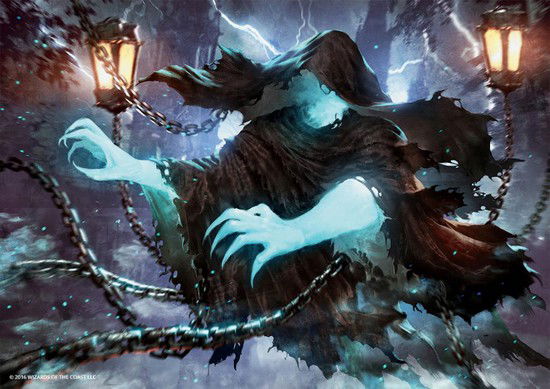
This precisely suits what is needed in a pilot of Spirits since, as stated, it's really 2 decks in one. Sometimes you get the aggro nut draw, Turn 1 Mausoleum Herald (which is both an aggro and control card), Turn 2 Lord, Turn 3 Lord, and just bash the opponent's face in, when he cannot interact with you at all on a slower draw, but sometimes games require a lot of interaction and thinking, more specifically, creature decks, like Auras, or the "worst" of them all, the mirror. I am thinking about what mode should I be in, aggro mode, or control mode. If I go full aggro mode, who will win the race to kill the other person? If I go control mode, and delay creature combat by tapping my team to tap the other person's team, who is benefited more in the late game?
I read a review of a person who won a tournament with Infect, and he said that a good infect pilot knows when to be patient, and when to strike and just kill out of nowhere. Switching between conservative control and aggressive aggro feels that same way to me. In my last Spirits mirror match, my opponent was ahead on board for almost the entire time, with early lords that were powered by Watcher of the Spheres, and I didn't have anywhere near of a strong board presence. So I made the decision to just play defensively, and never attack, until I could kill him in one shot, since if he survived the attack, his counter-attack would surely kill me since I'd have no blockers. The hardest decision I made that game was not to play the 2 Lords that I drew in my hand because, even though it makes my team weaker to the opponent's potential attack, I needed to play them on my turn for Nebelgast Herald to tap down the opponent's team to make sure that he would have no blockers, since it was my only shot.
It seems almost crazy to not play 2x Lords out, until the very end, but like I said, switching between aggro and control, and recognizing which situation calls for what, is the key to the deck. I won that game by killing the opponent in one shot after being constantly behind, since I knew the right time to go for the kill. Sometimes you feel like a lion, with the aggro nut draw and just attacking non-stop, and sometimes you feel like the snake, backed into a corner, with not a lot of space to move, and you need to have one very effective and lethal strike after you've been on the backfoot all game. I think you guys commented on that match. It was the last event, I think Round 3 mirror, Pioneer Royale 1.10. So yeah, this is the kind of stuff I am thinking about, having more of a slower and deliberate playstyle I don't know if I always make the right choice, but I tell ya, I sure as hell try my hardest to do so.
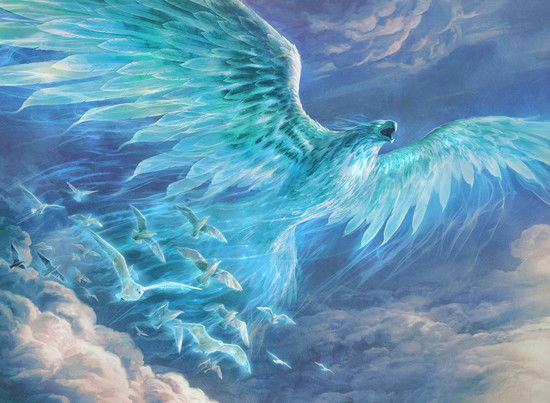
7 – Do you play Leagues in MTGO or in other competitive tournaments/events?
Keith: used to play in those, but not anymore for a long time. Back when I used to play - I didn't know it at the time - but I achieved an extremely high ELO rating (same rating system they use in chess, my score in Constructed was 1900+), and after someone pointed this out to me, I've gotten scared to ruin my high score by losing! It's almost like the parable of the centipede - which moves with so many legs - and someone asked the centipede one day, well, how do you know which leg to move and in what order, because it's all so complex? And the centipede was frozen after that, not knowing what to do. I feel the same way - once someone pointed out I had a really good score, I'm actually now frozen myself with fear that I am not good enough to maintain it, so now I am sort of "retired". But I did used to compete on MTGO and I have beaten some pros and such, here and there. But I'm no pro myself! Haha. Just someone who likes to think and learn to make the right moves.
Coming from chess, a game of no variance, it is difficult to sometimes swallow the bitter pill of variance that Magic has to offer. I often make the joke to others that I'm not willing to drive to a GP, buy a ticket, rent a hotel room, etc., just to get mana screwed in Round 1! As such, I am fearful in paying any entry fee to compete in any competitive event, because sometimes when you lose, it is completely out of your control and not something that you caused, and losing money / tix that way feels very bad. This is partially what drew me to this event - it has no entry fee, so if you get mana screwed, at least you won't lose any money. So I just decided to try it out, with no penalties for losing or doing poorly. And here I am now, getting to know all of you, after I was fortunate enough to have some great games of Magic.
Even if I were the best player in the world, I think I'd still be scared to play League games for money right now. I can handle the intellectual aspects of Magic, but I have trouble with the emotional elements. To me, losing to mana screw is like losing a chess game where you're missing pieces at the start of a game. It makes sense, since the reason I play Magic is so heavily involved with emotion. Emotion can become passion, motivation, inspiration, but it can also become anger, frustration, and despair. I think such a thing is ironically what drives me to Magic in the first place, but also ultimately why I can't ever be the best I can be: the best Magic, poker, and chess players act/think only logically, with no emotion attached, but I do not. They are robots, but I am only a human. But my plea is that, if this aspect of what I am sacrifices my ability to be great, well at least I hope it gives me a happier, more fun, and more meaningful experience instead.
8 – Thank you for your time, Keith! Good luck on the future competitions! =)
Keith: Thank you for the interview Exylem. I want to thank the warm Brazilian community of Pioneer Royale - the hosts, the sponsors, the players - for not only playing with me and making an outsider like me feel welcome, but also for taking an interest in me, both in and out of the competition. I hope you have fun watching and analyzing my matches! I don't know Portuguese, but the language of love is universal, and I am very honored to play with you guys. Te adoro and obrigado! And to opp Karametra's demais ;)
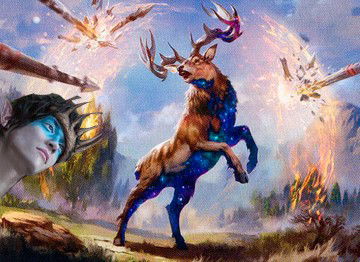
---
Wow, Keith's analysis was a lot deeper than I thought it would be, and we can certainly learn a lot from him! Thanks once again for accepting the invitation, Keith!
I hope you have enjoyed the interview, dear reader! Don't forget to leave your comments below and register next Tuesday for Pioneer Royale! I'll see you in the next article!

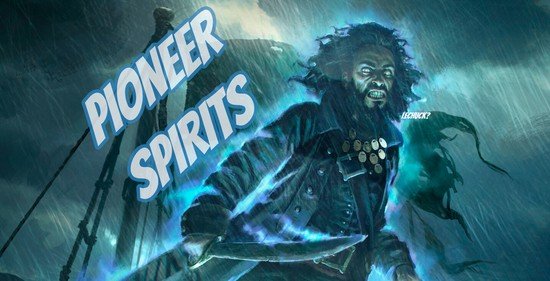







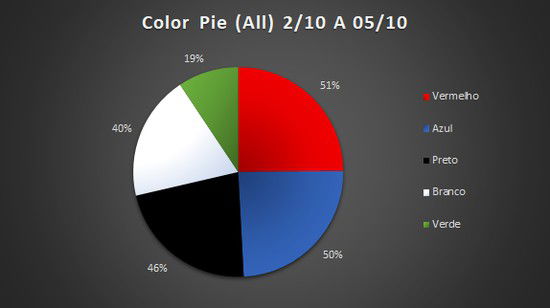
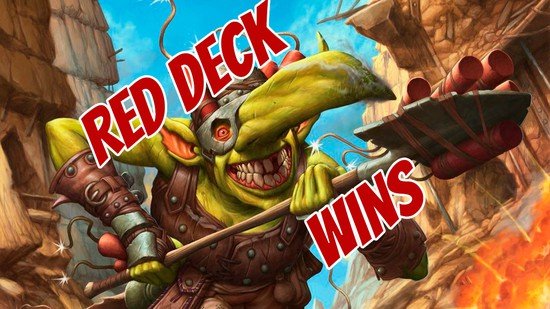



— Comments 0
, Reactions 1
Be the first to comment